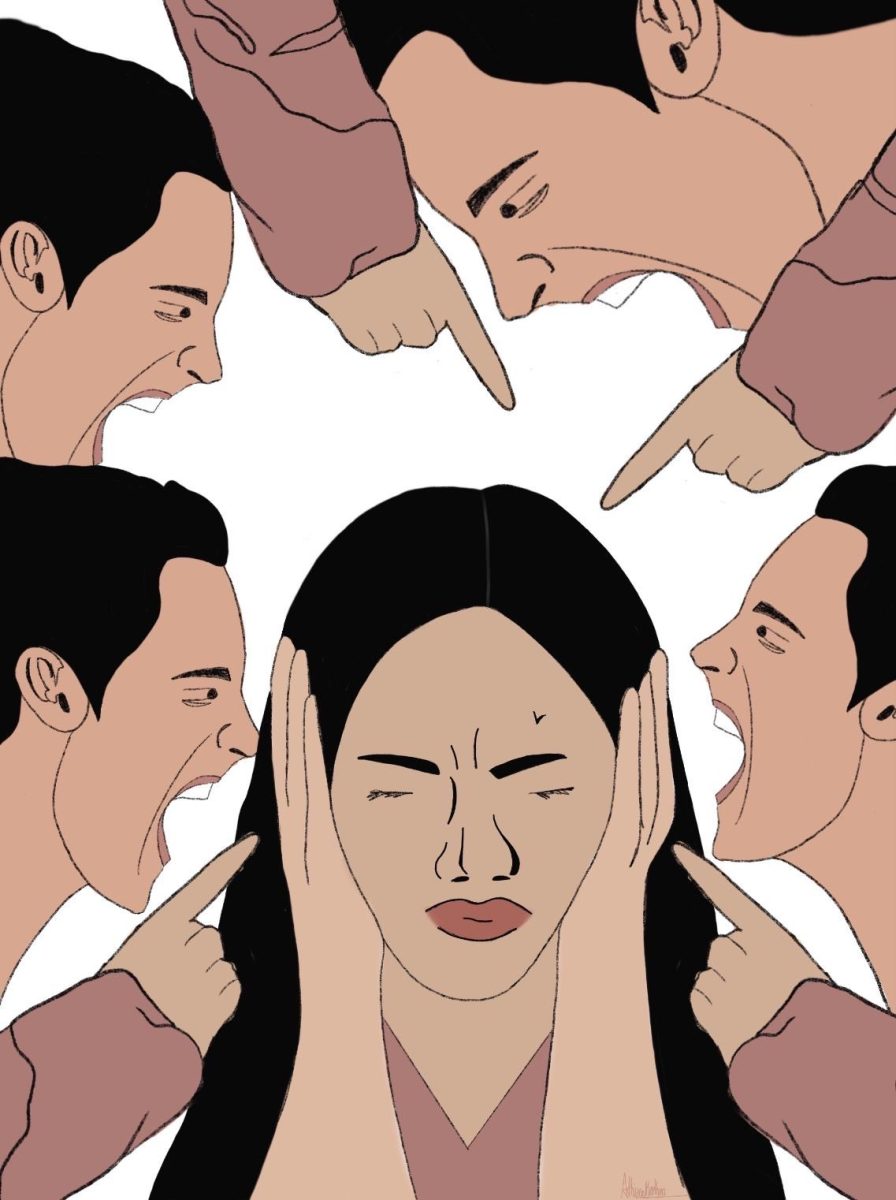In the Joseon era of Korea (1392-1910), traditional values — influenced by Confucian principles — confined women to their homes as wives and mothers. Society instructed women to embody the values of obedience and modesty. Centuries later, these traditional expectations of women’s roles remain ubiquitous in Korean society. Despite the improved access to education and employment, most women still experience unjustified misogyny and sexual harassment. In light of these instances, Korea has seen the emergence of revolutionary feminist movements, including the 4B movement: a radical anti-male group.
The 4B movement originated in South Korea in 2019 and began as a slogan stemming from four Korean words that each start with “bi-” or “no” in English. Members of this movement refuse marriage (bihon), childbirth (bichulsan), dating (biyeonae), and sex (bisekseu). Radical feminists view men as “unredeemable,” choosing to leave behind the idea of men completely.
There are a multitude of aspects in Korean society that push women into this radicalism. One of the largest is the prevalence of anti-feminist groups that attempt to justify sexual inequality by blaming low birth rates on feminist ideals while ignoring other underlying issues regarding harsh work environments, as well as the high cost of living. Even the very concept of feminism is criticized, with many believing it to carry negative connotations. Since traditional expectations of women have existed for centuries, misogynistic beliefs have become completely institutionalized into Korean society, resulting in a pervasive system that reinforces the mistreatment of women.
“In Korea, when I was in fourth grade, I first learned about feminism through an article. It was mentioned how some men were reacting negatively to feminism. [They] were like, why should women do this? Only men can do this,” said Jimin Jun (‘28).
Furthermore, Korea’s government actively feeds into anti-feminist values through its adamantly pro-natal stance and financial incentive programs that pay families to have more children, only enhancing the view of women as merely child-bearers. By sending out the message that the purpose of a woman’s body is to have children and increase the birth rate, the government itself promotes misogynistic, patriarchal standards within Korea’s society. Efforts to push for political reform regarding gender equality have seen minimal progress, especially since President Yoon Suk-Yeol pledged to abolish Korea’s Ministry of Gender Equality in 2022.
A further examination of the statistics regarding Korea’s gender issues reveals one of the highest gender pay gaps of any country in the world, with men being paid over 30 percent more than women. More recently, Korea has seen a surge in digital sex crimes, frequently through illegal recordings using hidden cameras or deepfakes. According to a Korea Times study, out of 5,437 perpetrators who were prosecuted for digital sex crimes in 2017, only 119 — or 2 percent — were imprisoned. Despite these increasing numbers, government apathy has resulted in a cycle that aids perpetrators in escaping punishment.
While it is unclear how widespread the 4B movement is due to its offline nature, the idea of a radical feminist group existing in a traditional and patriarchal society is a huge step for Korean women. “Not all men” isn’t good enough for 4B followers anymore — instead, Korean men as a whole are considered completely misogynistic. In the eyes of radical feminists, the extremity of boycotting men has become necessary for women to liberate themselves from social, sexual, and psychological oppression.
In a way, these feminist groups provide refuge for women who seek personal autonomy. Women fight to reclaim their identity by refusing to conform to traditional gender roles. They find security in the knowledge that by abstaining from men entirely, they eliminate any risk that could potentially devalue their identity. But placed in the backdrop of a society where women are degraded and beaten down to the lowest level, feminism may have the unintended effect of ridiculing women to a further extent. The heavy stigma and criticism surrounding feminist ideals have ultimately led to the severe polarization of men and women — paired with Korea’s reluctance to change the system, sexist stereotypes disguised as gender roles continue to persist. As women begin to remove men from the focal point of their lives, men misinterpret feminists as misandrists, while women become increasingly angered over unresolved issues.
The 4B Movement is not just confined to South Korea, however; hours after the 2024 US Presidential Election, the movement went viral in response to Donald Trump’s victory. In light of a political project that aims to prevent women from accessing their reproductive rights, women have expressed frustration over the fact that most in the United States would rather anyone else — even a criminal and rapist — as president than a woman. Women in America are calling to adapt the 4B movement to American politics. On platforms such as X, TikTok, and Reddit’s r/Feminism, women have proclaimed their refusal to allow men access to their bodies. Others also lamented the fact that many men expect sex, but simultaneously want to take away the right to abortion from women. “My body, my choice” is an idea that Trump threatens with his anti-abortion beliefs and many of his conservative followers have twisted the phrase to say “Your body, my choice.” Amidst the election results, bringing the 4B movement to America could bring a rise of radical feminism that addresses the rollback of women’s rights.
With cases such as gender discrimination and an increasing presence of online abuse of women, more women turn to the extremes of feminism. Governments must first recognize societal prejudices and take action through laws and reforms that address these issues and condemn gender inequality. Until the patriarchy is completely dismantled through government intervention, the conflict between men and women will only escalate.


